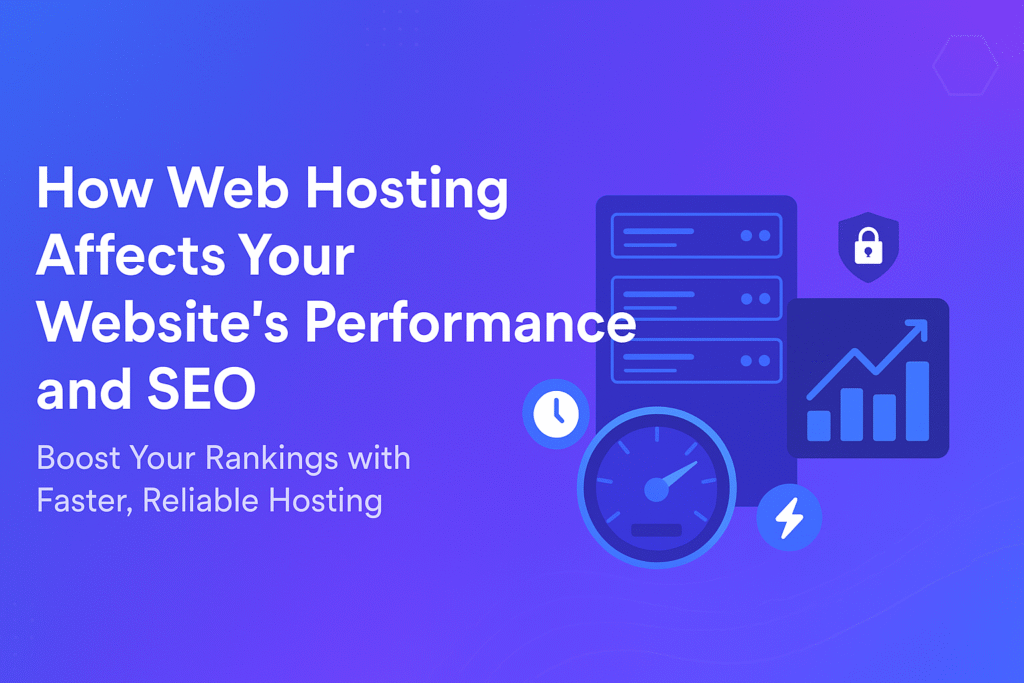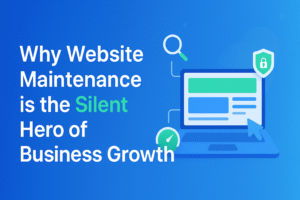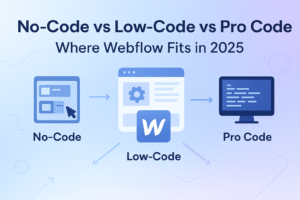In the digital era, your website is often the first impression customers have of your business. But while design, content, and marketing get most of the attention, there’s a hidden factor that can make or break your online success — web hosting. A website’s hosting environment determines how fast it loads, how often it’s available to visitors, and how secure it is. All of these elements directly influence not just user experience, but also how search engines like Google rank your site.
If you’ve been wondering how does web hosting affect website performance and why it matters for SEO, this guide will explain everything in straightforward, practical terms. By the end, you’ll know exactly what to look for in the best hosting for SEO and how hosting speed optimization can give your site a competitive edge.
The Connection Between Web Hosting and SEO
When people think about improving SEO, they usually focus on keyword optimization, backlink building, and content creation. While these are important, the role of web hosting performance is often overlooked. Your hosting provider is the backbone of your website. It determines how fast your pages load, how often your site stays online, and how secure it is from potential threats — all factors that directly influence search engine rankings.
Search engines like Google prioritize websites that deliver a positive user experience. This means fast load times, minimal downtime, and safe browsing. If your web hosting is slow, unreliable, or lacks proper security, it creates a poor experience for visitors. As a result, users may leave your site quickly, increasing your bounce rate, which can signal to search engines that your site is not meeting user needs. Over time, this can lead to lower rankings.
Additionally, a good web hosting setup supports hosting speed optimization by reducing server response times and improving Core Web Vitals — key metrics Google uses to evaluate site performance. Choosing the best hosting for SEO ensures that your site is consistently fast and accessible, no matter how many visitors it receives or where they’re located.
Think of it this way: your website is like a high-performance sports car, and web hosting is the engine. Without a reliable and powerful engine, even the best-designed car won’t perform well on the track. The same applies to your website — great content and design won’t get you far without the right hosting to power them.
2. Website Speed & Loading Time
Page speed isn’t just about convenience — it’s a direct ranking factor for Google and a big part of user experience. When a website takes too long to load, visitors often click away before engaging with the content. This can send negative signals to search engines about your site’s relevance and quality.
How hosting affects speed: A high-quality hosting provider uses modern SSD storage, efficient server configurations, and powerful CPUs to ensure faster delivery of your content. These elements are crucial for hosting speed optimization, especially if you want to pass Google’s Core Web Vitals test.
Impact on SEO: Studies show that even a one-second delay can reduce conversions by up to 7%, and higher bounce rates often lead to lower rankings.
Quick tip: Regularly test your speed using tools like Google PageSpeed Insights or GTmetrix, and if your load time is slow despite optimizing your website, it might be time to upgrade your web hosting.
3. Server Uptime & Reliability
Uptime measures how consistently your website is accessible on the internet. The best hosting for SEO ensures an uptime rate of 99.9% or more, meaning your site is almost always available to users and search engine crawlers.
Why it matters: Every minute your site is down is a missed opportunity for engagement and sales. For search engines, repeated downtime can signal that your site is unreliable, and they may reduce how often they crawl it.
SEO impact: Poor uptime can lead to indexing delays and drops in ranking positions, especially for competitive keywords.
Hosting tip: Choose a hosting provider that offers strong uptime guarantees, redundant server systems, and real-time monitoring to catch problems before they affect your audience.
4. Security & SSL Certificates
Website security isn’t optional anymore — it’s an essential SEO factor. Google now flags non-HTTPS sites as “Not Secure,” which can deter visitors and reduce trust.
Hosting impact: Quality hosting services include free SSL certificates, daily malware scans, firewalls, and automatic backups. These features protect your data and your visitors from security threats.
SEO benefit: Search engines prefer secure sites because they offer a safer browsing experience, which aligns with Google’s mission to protect users.
Pro tip: Even budget-friendly hosts now offer SSL, so there’s no reason not to have HTTPS enabled. This small change can have a big impact on both trust and rankings.
5. Server Location & CDN Usage
The physical location of your hosting server influences how quickly data travels to your visitors. The farther away your audience is from your server, the longer it takes for your site to load.
SEO impact: Longer load times can negatively affect rankings, especially for mobile users who expect instant access.
Solution: If your audience is spread across multiple regions, use a CDN (Content Delivery Network) to store copies of your website on multiple servers worldwide. This improves web hosting performance for global users and supports hosting speed optimization.
Hosting choice tip: When selecting a host, pick a data center location closest to your target market for the best possible load times.
6. Scalability & Traffic Handling
Your hosting plan needs to handle not just your current traffic but also future growth. A viral post, seasonal sale, or successful marketing campaign can send sudden spikes in visitors, and unprepared hosting can crash under the load.
Why it matters: If your site goes offline during a peak traffic moment, you lose potential customers and risk damaging your SEO performance.
Best practice: Choose a hosting plan that can scale resources quickly — such as cloud hosting or VPS — so you can handle traffic surges without downtime. Scalable hosting also ensures you maintain strong performance even during high-demand periods.
7. Choosing the Right Web Hosting for SEO
Not all hosting is created equal, and choosing the right one can make a big difference in rankings.
Shared hosting: Budget-friendly but slower and less reliable for high-traffic sites.
VPS hosting: Offers better speed, resources, and control without the high cost of dedicated servers.
Dedicated hosting: Ideal for large businesses or e-commerce sites needing maximum speed and security.
Cloud hosting: Flexible, scalable, and perfect for businesses expecting rapid growth.
Checklist for SEO-friendly hosting: Look for a 99.9% uptime guarantee, fast SSD storage, free SSL, a server location close to your audience, scalable plans, and responsive technical support. These elements ensure strong web hosting performance and create a solid foundation for your SEO strategy.
Conclusion
So, how does web hosting affect website performance and SEO? In short, it impacts everything — from loading speed and uptime to security and scalability. These technical factors shape the user experience and play a major role in how search engines rank your website.
Choosing the best hosting for SEO isn’t just about keeping your site online; it’s about ensuring consistent speed, security, and reliability so your visitors stay engaged and your rankings improve. Hosting speed optimization is one of the smartest long-term investments you can make for your online success.
Ready to boost your website’s performance and SEO with the right hosting solution? Visit Shreeji Software and take the first step toward faster, more reliable, and search-friendly hosting.
FAQ
1. Does changing my hosting improve SEO?
Yes, if your current hosting is slow, has poor uptime, or lacks proper security, upgrading to a provider with better web hosting performance can improve loading speed, reduce downtime, and boost rankings. Search engines reward fast, stable, and secure websites.
2. Is shared hosting bad for SEO?
Not always. Shared hosting can be a cost-effective option for smaller sites, but it often struggles with hosting speed optimization when traffic increases. For high-traffic or SEO-driven sites, VPS or cloud hosting is usually a better choice.
3. How does server location affect SEO?
Server location impacts latency — the closer your server is to your target audience, the faster your site loads for them. Faster load times improve user experience and SEO. If your audience is global, using a CDN can balance speed across regions.
4. What’s the best hosting for SEO?
The best hosting for SEO is one that offers 99.9% uptime, fast SSD storage, free SSL, scalable resources, strong security features, and a data center location close to your target audience. Cloud hosting and VPS often meet these criteria.
5. How does web hosting affect website performance in the long run?
Good hosting ensures consistent speed, minimal downtime, and robust security, all of which help maintain strong search engine rankings. Poor hosting, on the other hand, can cause ranking drops, higher bounce rates, and lost traffic over time.











